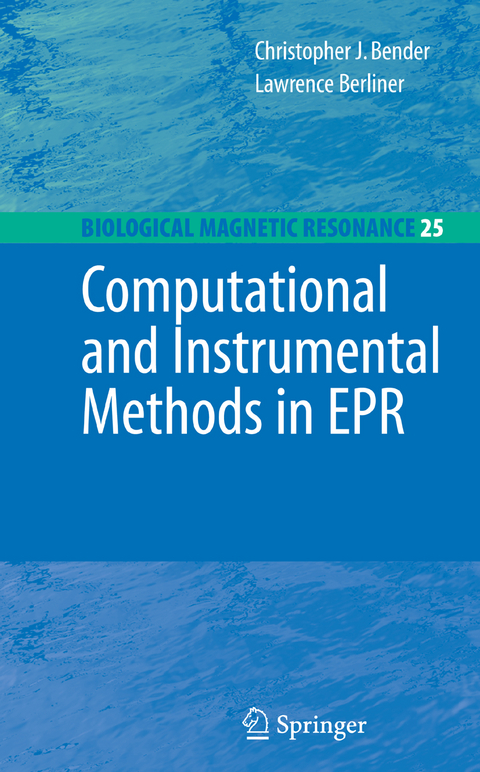
Computational and Instrumental Methods in EPR
Seiten
2010
|
Softcover reprint of hardcover 1st ed. 2007
Springer-Verlag New York Inc.
978-1-4419-4112-1 (ISBN)
Springer-Verlag New York Inc.
978-1-4419-4112-1 (ISBN)
Electron magnetic resonance in the time domain has been greatly facilitated by the introduction of novel resonance structures and better computational tools, such as the increasingly widespread use of density-matrix formalism. This second v- ume in our series, devoted both to instrumentation and computation, addresses - plications and advances in the analysis of spin relaxation time measurements. Chapters 1 deals with the important problem of measuring spin relaxation times over a broad temporal range. The author, Dr. Sushil Misra, has worked on a wide variety of solutions to problems in this area, with respect to both experimental and theoretical aspects, and Chapter 1 summarizes much of his recent work, which was enhanced by a fruitful collaboration with the late Professor Jacques Pescia. Chapter 2 presents solutions to the problem of measuring short spin relaxation times. Again, in collaboration and tribute to the late Jacques Pescia's laboratory, part of the chapter represents a translation of the amplitude modulation technique section from a doctoral thesis by Robert Lopez in 1993 to The Paul Sabatier U- versity. Experimental data that appeared in the original thesis are placed at the end of subsections that correspond to the described technique. Chapter 3 takes up the problem of multi-frequency ENDOR and ESEEM, and illustrates how small stepwise increments of spectrometer operating parameters can enable one to better determine spin-Hamiltonian parameters via a graphical analysis.
Microwave Amplitude Modulation Technique to Measure Spin-Lattice (T 1) and Spin-Spin (T 2) Relaxation Times.- Improvement in the Measurement of Spin-Lattice Relaxation Time in Electron Paramagnetic Resonance.- Quantitative Measurement of Magnetic Hyperfine Parameters and the Physical Organic Chemistry of Supramolecular Systems.- New Methods of Simulation of Mn(II) EPR Spectra: Single Crystals, Polycrystalline and Amorphous (Biological) Materials.- Density Matrix Formalism of Angular Momentum in Multi-Quantum Magnetic Resonance.
| Erscheint lt. Verlag | 24.11.2010 |
|---|---|
| Reihe/Serie | Biological Magnetic Resonance ; 25 |
| Zusatzinfo | XIV, 222 p. |
| Verlagsort | New York, NY |
| Sprache | englisch |
| Maße | 155 x 235 mm |
| Themenwelt | Naturwissenschaften ► Biologie ► Biochemie |
| Naturwissenschaften ► Chemie ► Analytische Chemie | |
| Naturwissenschaften ► Chemie ► Organische Chemie | |
| Naturwissenschaften ► Physik / Astronomie ► Angewandte Physik | |
| Naturwissenschaften ► Physik / Astronomie ► Atom- / Kern- / Molekularphysik | |
| Naturwissenschaften ► Physik / Astronomie ► Elektrodynamik | |
| Naturwissenschaften ► Physik / Astronomie ► Festkörperphysik | |
| Naturwissenschaften ► Physik / Astronomie ► Plasmaphysik | |
| Technik ► Maschinenbau | |
| ISBN-10 | 1-4419-4112-6 / 1441941126 |
| ISBN-13 | 978-1-4419-4112-1 / 9781441941121 |
| Zustand | Neuware |
| Haben Sie eine Frage zum Produkt? |
Mehr entdecken
aus dem Bereich
aus dem Bereich


